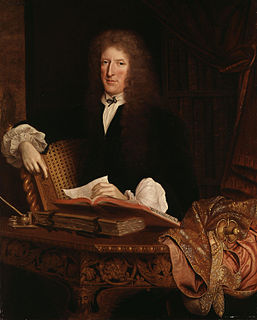Ein Zitat von Carl Jung
Das Wort „Glück“ würde seine Bedeutung verlieren, wenn es nicht ausgewogen und kontrastiert und mit Traurigkeit verglichen würde. Wenn wir vergleichen, wie eine Erfahrung schlimmer hätte sein können, entwickeln wir Dankbarkeit und Glück, während wir Bitterkeit und Traurigkeit entwickeln, wenn wir vergleichen, wie sie besser hätte sein können.
Verwandte Zitate
Es ist nicht der Ort oder die Bedingung, sondern der Geist allein, womit er seine Situation vergleicht, kann jeden glücklich oder unglücklich machen. Vergleichen Sie es mit etwas Besserem – das Ergebnis sind Neid, Frustration und Traurigkeit. Vergleichen Sie es mit etwas Schlimmerem – Erleichterung, Dankbarkeit und Glück.
Der Geist ist die Quelle von Glück und Unglück, je nachdem, womit er die Erfahrung vergleicht. Wenn es sich dafür entscheidet, es mit etwas Schlimmerem zu vergleichen, wird es Glück, Dankbarkeit und Stolz hervorrufen, wenn es sich jedoch dafür entscheidet, es mit etwas Besserem zu vergleichen, wird es Unglück, Bitterkeit und Neid hervorrufen.
Traurigkeit ist eine sehr interessante Idee. Diese Vorstellung von Traurigkeit ist eine Art Standardeinstellung, auf die Künstler zurückgreifen. Und dann fing ich an, über die Vorstellung von Traurigkeit und Glück nachzudenken und über die Vorstellung, dass Traurigkeit sehr laut und Glück leise ist.
Traurigkeiten des Intellekts: Traurigkeit darüber, missverstanden zu werden [sic]; Humor Traurigkeit; Traurigkeit der Liebe ohne Erlösung; Traurig, klug zu sein; Traurigkeit darüber, nicht genug Worte zu können, um [auszudrücken, was man meint]; Traurigkeit, Optionen zu haben; Traurigkeit, Traurigkeit zu wollen; Traurigkeit der Verwirrung; Traurigkeit der domestizierten Vögel; Traurigkeit, ein Buch zu Ende zu bringen; Traurigkeit der Erinnerung; Traurigkeit des Vergessens; Angst, Traurigkeit.
Es stimmt nicht, dass wir nicht traurig wären, wenn wir wahren Glauben hätten. Propheten (as) und rechtschaffene Menschen erlebten viel Trauer. Der Koran ist voller Geschichten, in denen Traurigkeit das zentrale Thema ist. Traurigkeit ist eine Realität des Lebens. Der Koran ist nicht dazu da, die Traurigkeit zu beseitigen, sondern sie zu steuern. Traurigkeit ist eine der Prüfungen des Lebens, genauso wie Glück und Wut Prüfungen sind.
Sie werden nie einen glücklichen, undankbaren Menschen oder einen unglücklichen, dankbaren Menschen treffen, denn Dankbarkeit und Glück gehören zusammen. Manchmal geht Glück der Dankbarkeit voraus, aber oft geht Dankbarkeit dem Glück voraus. Letzteres wird erreicht, indem man erkennt, dass alles schlimmer sein könnte, es aber nicht so ist, und man sich dadurch erleichtert, dankbar und glücklich fühlt.
Denken Sie daran: Wenn Sie Traurigkeit nicht zusammen mit Glück gekannt haben, haben Sie noch nichts gekannt. Dann ist Ihr Glück oberflächlich; Deine Traurigkeit ist auch oberflächlich. Dann haben Sie an der Oberfläche gelebt; dann hast du nur die Wellen gekannt; Du hast die Tiefe des Ozeans, in dem du dich befindest, nicht gekannt.



































